Concepts of Power in Political Philosophy
This article explores the various interpretations and dimensions of power within political philosophy, examining historical perspectives, key theorists, and contemporary debates that shape our understanding of authority and governance.
Understanding how power has been perceived throughout history provides crucial insights into its evolution. Ancient philosophers like Plato and Aristotle laid the groundwork for political thought, emphasizing the role of virtue and ethics in governance. Plato, for instance, viewed power as a means to achieve justice, while Aristotle considered it a tool for the common good. Fast forward to the Enlightenment, where thinkers like John Locke and Jean-Jacques Rousseau began to challenge the divine right of kings, advocating for a social contract that placed power in the hands of the people. This historical context is essential for grasping the complexities of power today.
This section delves into the influential theorists who have shaped the discourse on power, such as Machiavelli, Hobbes, and Foucault, highlighting their unique perspectives and lasting impact on political philosophy.
Machiavelli's pragmatic approach to power emphasizes the importance of political cunning and strategy. He famously argued that "the ends justify the means," suggesting that rulers must sometimes engage in morally questionable actions to maintain stability and effectiveness. His ideas challenge traditional moral frameworks, presenting power as a tool for achieving political objectives rather than a mere reflection of ethical considerations. This perspective has influenced countless leaders and has become a cornerstone of modern political strategy.
Hobbes' theory of the social contract illustrates the necessity of a strong authority to maintain order. In his view, human beings are naturally self-interested and prone to conflict, which necessitates a powerful sovereign to impose rules and ensure compliance. His views on human nature and fear underscore the foundational role of power in societal organization. The social contract, therefore, is not just an agreement but a means to escape the chaos of the "state of nature."
Foucault redefined power as a complex network of relationships rather than a fixed entity. His analysis of power dynamics highlights how it operates through social institutions and knowledge systems. For Foucault, power is not just held by governments or leaders; it permeates all levels of society and is constantly shifting. This perspective encourages us to look beyond traditional notions of authority and consider how power shapes our everyday interactions and societal norms.
This section examines current discussions surrounding power, including issues of sovereignty, global governance, and the implications of digital technology on political authority and individual autonomy. In today's interconnected world, the concept of power is continually evolving. The rise of social media, for example, has shifted the balance of power, enabling individuals to challenge traditional authorities and mobilize for change. Furthermore, debates around global governance raise questions about how power is distributed on an international scale, particularly in addressing global issues like climate change and human rights.
Exploring the relationship between power and authority reveals how legitimacy is constructed in political contexts. Authority is not just about having power; it’s about being recognized as legitimate by those who are governed. This section analyzes different forms of authority and their implications for governance and compliance.
We will compare traditional authority, rooted in established customs, with charismatic authority, which relies on the personal appeal of leaders. Traditional authority is often seen in monarchies and tribal systems, where power is inherited and upheld by long-standing customs. In contrast, charismatic authority arises from the extraordinary qualities of a leader, who inspires loyalty and devotion. Understanding these distinctions is vital for analyzing political legitimacy, as leaders must navigate the complex interplay between these forms of authority to maintain their power.
Legal authority, based on established laws and regulations, is essential for modern governance. This section discusses the role of bureaucratic structures in enforcing legal authority and maintaining order in society. Bureaucracies are designed to implement laws consistently and fairly, but they can also become cumbersome and resistant to change. The challenge lies in balancing the need for order with the necessity of adaptability in a rapidly changing world.
Power is often contested, leading to various forms of resistance. This section explores the dynamics between power holders and those who challenge authority, examining strategies of dissent and social movements. Resistance can take many forms, from peaceful protests to revolutionary actions. Understanding these dynamics is crucial for comprehending how power operates and how it can be challenged effectively.
- What is the difference between power and authority? Power refers to the ability to influence or control others, while authority is the recognized right to exercise that power.
- How do historical perspectives shape our understanding of power today? Historical perspectives provide context and frameworks that inform contemporary debates and theories about power dynamics in society.
- Who are the most influential theorists in political philosophy? Key theorists include Machiavelli, Hobbes, and Foucault, each offering unique insights into the nature of power and governance.
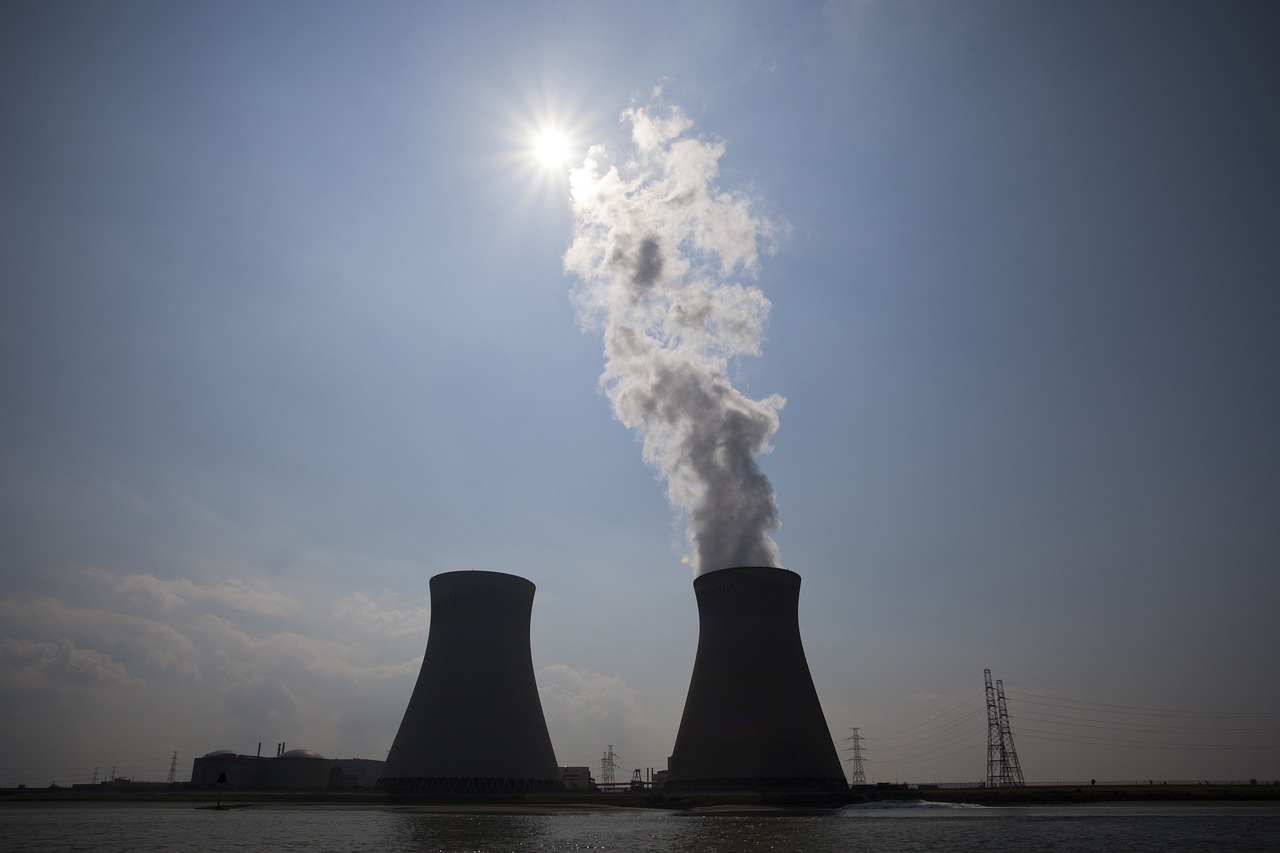
Historical Perspectives on Power
Understanding how power has been perceived throughout history provides crucial insights into its evolution. From the ancient civilizations to the modern state, the concept of power has undergone significant transformations, shaped by cultural, social, and political contexts. In ancient times, power was often seen as a divine right, where rulers claimed authority through their connection to the gods. This perspective can be traced back to the early empires of Egypt and Mesopotamia, where monarchs were considered semi-divine figures, wielding absolute control over their subjects.
As we move through history, the Classical Greek philosophers like Plato and Aristotle began to analyze power in more rational terms. Plato, in his work "The Republic," introduced the idea of philosopher-kings, suggesting that the most enlightened individuals should govern society. Aristotle, on the other hand, classified different forms of government—monarchy, aristocracy, and polity—emphasizing the importance of the middle class in sustaining a balanced political system. This shift from divine right to rational governance marked a significant turning point in the understanding of political authority.
During the Middle Ages, the concept of power became intertwined with religion. The Church held immense authority, often superseding secular rulers. This period saw the emergence of the Feudal System, where power was decentralized, with lords and vassals exchanging loyalty for protection. The intricate web of allegiances created a complex landscape of power dynamics, which would later be challenged during the Renaissance and the Enlightenment.
The Enlightenment thinkers, such as John Locke and Jean-Jacques Rousseau, revolutionized the concept of power by introducing the idea of the social contract. They argued that legitimate authority arises from the consent of the governed, fundamentally shifting the basis of political power from divine right to popular sovereignty. This perspective laid the groundwork for modern democratic thought and the belief that power should be held accountable to the people.
In the 19th century, political theorists like Karl Marx critiqued the capitalist structures that dominated society, arguing that power is rooted in economic relations. Marx's analysis of class struggle highlighted how power is not just a matter of governance but is deeply embedded in the social fabric. His ideas sparked revolutionary movements aimed at dismantling oppressive systems, emphasizing that power is often contested and can lead to significant societal change.
In the contemporary era, thinkers like Michel Foucault have further complicated our understanding of power. Foucault argued that power is not merely held by individuals or institutions but is dispersed throughout society, operating through various discourses and practices. This perspective invites us to reconsider traditional notions of authority and recognize the subtle ways in which power influences our everyday lives.
As we reflect on these historical perspectives, it becomes clear that the concept of power is not static; it evolves with society. From divine kingship to democratic governance, and from economic control to social dynamics, the understanding of power continues to shape our political landscape. By studying these historical interpretations, we can better grasp the complexities of authority and governance in our modern world.
- What is the historical significance of power in political philosophy?
The historical significance of power in political philosophy lies in its evolution from divine authority to social contracts, shaping the foundations of modern governance and democratic ideals.
- How did Enlightenment thinkers change the perception of power?
Enlightenment thinkers shifted the perception of power by introducing the idea that legitimate authority comes from the consent of the governed, challenging the notion of divine right.
- What role does Foucault play in understanding power dynamics?
Foucault redefined power as a complex network of relationships, emphasizing its dispersion throughout society and its operation through various institutions and discourses.
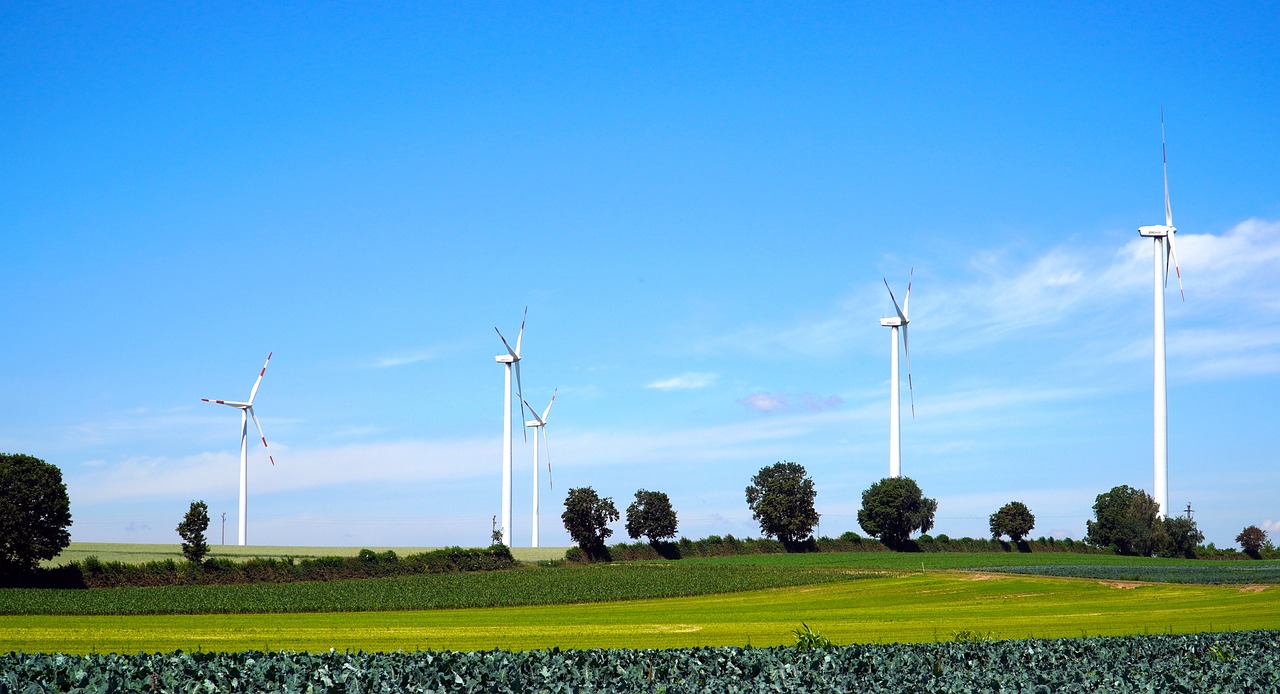
Key Theorists of Political Power
When we dive into the fascinating world of political power, we inevitably encounter a handful of towering figures whose ideas have profoundly shaped our understanding of authority. These theorists, each with their unique lens, offer insights that remain relevant today. Among the most notable are Machiavelli, Hobbes, and Foucault. Their contributions not only highlight the complexities of power dynamics but also challenge us to think critically about governance and authority.
Machiavelli is often seen as the father of modern political science, and his work, particularly in "The Prince," is a testament to this. He presents a pragmatic view of power, arguing that the ends often justify the means. For Machiavelli, political leaders must be shrewd, willing to employ cunning and sometimes ruthless tactics to maintain stability and control. His ideas force us to confront uncomfortable truths about morality in politics. Is it acceptable for leaders to act immorally if it serves the greater good? This question remains a hot topic in political discourse.
Next, we have Thomas Hobbes, whose theory of the social contract offers a different perspective on power. In his seminal work "Leviathan," Hobbes posits that humans are naturally self-interested and that life without a strong authority would be "solitary, poor, nasty, brutish, and short." He argues that individuals consent to surrender some of their freedoms to a sovereign power in exchange for security and order. This raises important discussions about the balance between liberty and authority. How much power should we relinquish for the sake of safety? Hobbes' perspective is crucial for understanding the foundations of modern governance.
Then we turn to Michel Foucault, whose analysis of power dynamics shifted the conversation from authority as a static force to a fluid, relational concept. Foucault argues that power is everywhere; it is not merely held by institutions or individuals but is exercised through social relationships and knowledge systems. His ideas challenge traditional notions of power, suggesting that resistance is inherent in all power relationships. This perspective opens up new avenues for understanding social movements and dissent. If power is everywhere, how do we recognize and challenge it? Foucault's insights encourage us to look closely at the subtle ways power operates in our lives.
In summary, the contributions of these theorists are not just historical footnotes; they are living ideas that continue to influence contemporary political thought. To illustrate their varying perspectives, consider the following table:
| Theorist | Key Ideas | Impact on Political Thought |
|---|---|---|
| Machiavelli | Realpolitik, Ends justify means | Challenges moral frameworks in governance |
| Hobbes | Social contract, Need for strong authority | Foundation for modern state theory |
| Foucault | Power as relational, Knowledge and power | Redefines resistance and social dynamics |
These theorists collectively enrich our understanding of political power, encouraging us to engage critically with the systems that govern our lives. Their ideas remind us that power is not just a tool for oppression but also a complex web of relationships that can be navigated and contested. As we continue to explore the nature of power, we must ask ourselves: How do these theories inform our current political landscape? What lessons can we draw from their insights to address the challenges we face today?
- Who is considered the father of modern political science? Machiavelli is often referred to as the father of modern political science due to his pragmatic approach to power.
- What is Hobbes' view on human nature? Hobbes believed that humans are naturally self-interested and require a strong authority to maintain order.
- How does Foucault's view of power differ from traditional perspectives? Foucault sees power as a relational and pervasive force rather than something that is simply held by individuals or institutions.
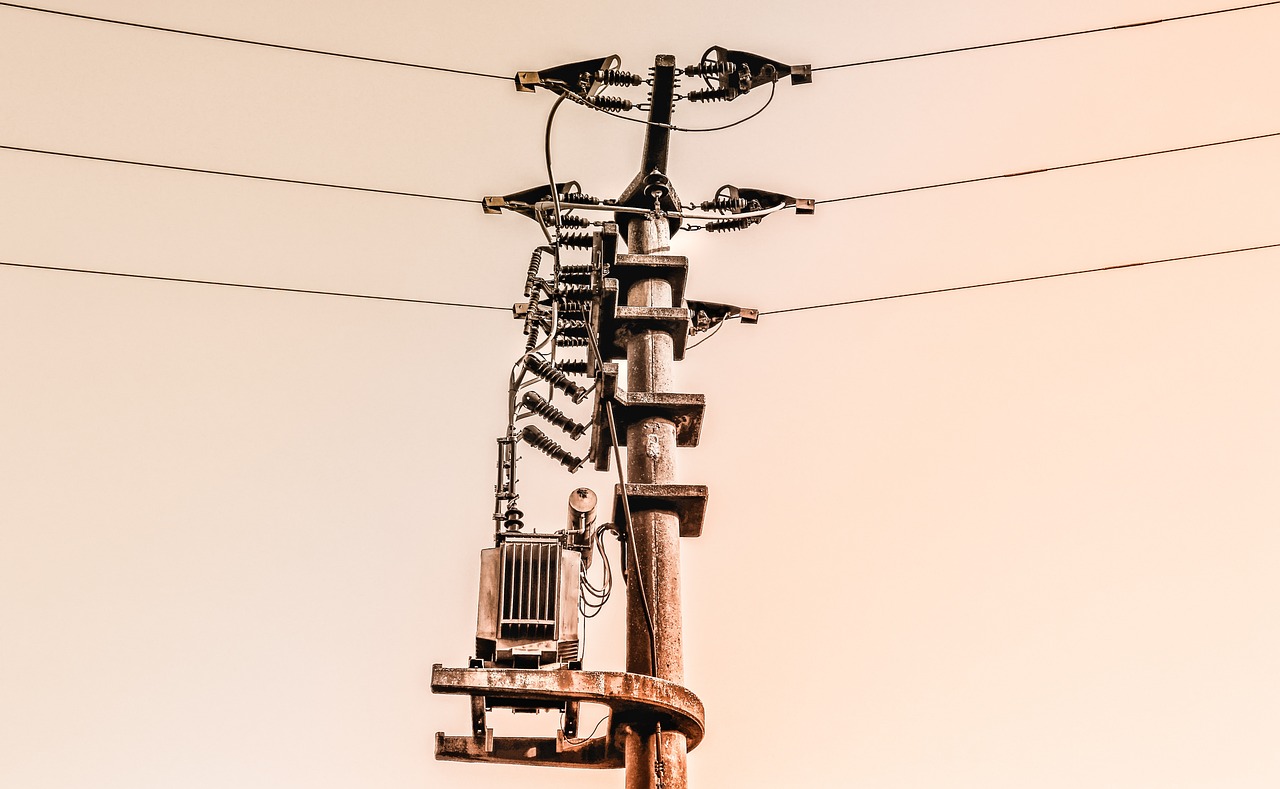
Machiavelli's Realpolitik
When we dive into the world of political theory, few names resonate as profoundly as Niccolò Machiavelli. His work, particularly in "The Prince," throws open the doors to a realm where power isn't just an abstract concept but a tangible force that shapes the very fabric of governance. Machiavelli's approach, often dubbed Realpolitik, is characterized by a pragmatic, sometimes ruthless understanding of political power. He argued that the ends often justify the means, a notion that challenges our conventional moral frameworks.
Imagine a chess game where every move is calculated not just for immediate gain but for long-term dominance. In this game, a ruler must be willing to do what is necessary to maintain power, even if it means making morally ambiguous decisions. Machiavelli famously stated, "It is better to be feared than loved, if you cannot be both." This provocative assertion lays bare his belief that fear can be a more reliable tool for maintaining authority than love or loyalty. But why does he advocate for such a stark approach? The answer lies in his observations of human nature.
Machiavelli viewed humans as inherently self-interested and fickle. He believed that a ruler must understand this fundamental aspect of human behavior to navigate the treacherous waters of politics effectively. To illustrate his point, consider the following key ideas:
- Political Cunning: Machiavelli emphasized the importance of strategy and cunning over traditional moral considerations. A successful ruler must be adaptable and willing to deceive when necessary.
- Stability over Morality: For Machiavelli, the primary goal of any ruler is to secure and maintain power. This often involves making difficult choices that may not align with conventional ethical standards.
- Realities of Governance: He argued that the political landscape is fraught with challenges, and a ruler must be prepared to face them head-on, often employing tactics that others might deem unethical.
Ultimately, Machiavelli's Realpolitik serves as a stark reminder of the complexities of political power. It forces us to confront uncomfortable truths about authority and governance. While his ideas may seem harsh, they challenge us to consider the delicate balance between morality and the necessity of power in political life. In a world where leaders often grapple with the duality of being both loved and feared, Machiavelli's insights remain as relevant today as they were in the turbulent political landscape of Renaissance Italy.

Hobbes and the Social Contract
When we dive into the fascinating world of political philosophy, one name that stands out is Thomas Hobbes. His ideas, particularly those surrounding the concept of the social contract, have left an indelible mark on our understanding of authority and governance. Imagine living in a world without rules or structures—chaotic, right? Hobbes painted a rather grim picture of human nature, suggesting that in the absence of a powerful authority, life would be "solitary, poor, nasty, brutish, and short." This bleak outlook on humanity serves as the foundation for his theory.
Hobbes believed that to escape this anarchy, individuals must collectively agree to surrender some of their freedoms to a sovereign authority. This agreement forms the basis of the social contract, where the people consent to be governed in exchange for protection and order. It’s like trading a piece of your freedom for a sense of security—an arrangement that many might find reasonable, especially when faced with the alternative.
In Hobbes' view, the ideal sovereign is an absolute power, one that holds the authority to enforce laws and maintain peace. This leads us to a crucial question: what happens when the sovereign fails to uphold its end of the bargain? Hobbes argued that rebellion is justified only under extreme circumstances, as the chaos of a power vacuum could lead to a worse situation than that of a flawed government.
| Key Concepts of Hobbes' Social Contract | Description |
|---|---|
| State of Nature | A hypothetical condition where no government or authority exists, leading to chaos and conflict. |
| Social Contract | An agreement among individuals to form a society and accept certain limitations on their freedoms for collective security. |
| Absolute Sovereignty | The idea that a single ruler or governing body must hold ultimate power to ensure peace and order. |
Hobbes' ideas resonate strongly in contemporary discussions about governance. In a world increasingly dominated by political turmoil and uncertainty, his emphasis on a strong, central authority raises pertinent questions about the balance between liberty and security. Can we truly trust a powerful government, or does that power inevitably lead to tyranny? These questions continue to fuel debates among political theorists and practitioners alike.
Ultimately, Hobbes' social contract theory challenges us to consider the delicate balance between the need for order and the inherent rights of individuals. It beckons us to explore how power is not merely an abstract concept but a living, breathing force that shapes our societies and our lives. As we reflect on Hobbes' insights, we can better understand the complexities of power and authority in our own political landscapes.
- What is the social contract theory? The social contract theory posits that individuals consent, either explicitly or implicitly, to surrender some freedoms to a governing body in exchange for protection and social order.
- Why did Hobbes believe in absolute sovereignty? Hobbes believed that only an absolute sovereign could effectively maintain peace and prevent the chaos of a state of nature.
- How does Hobbes' view of human nature influence his political theory? Hobbes had a pessimistic view of human nature, believing that people are inherently self-interested and that a strong authority is necessary to curb conflict and maintain order.
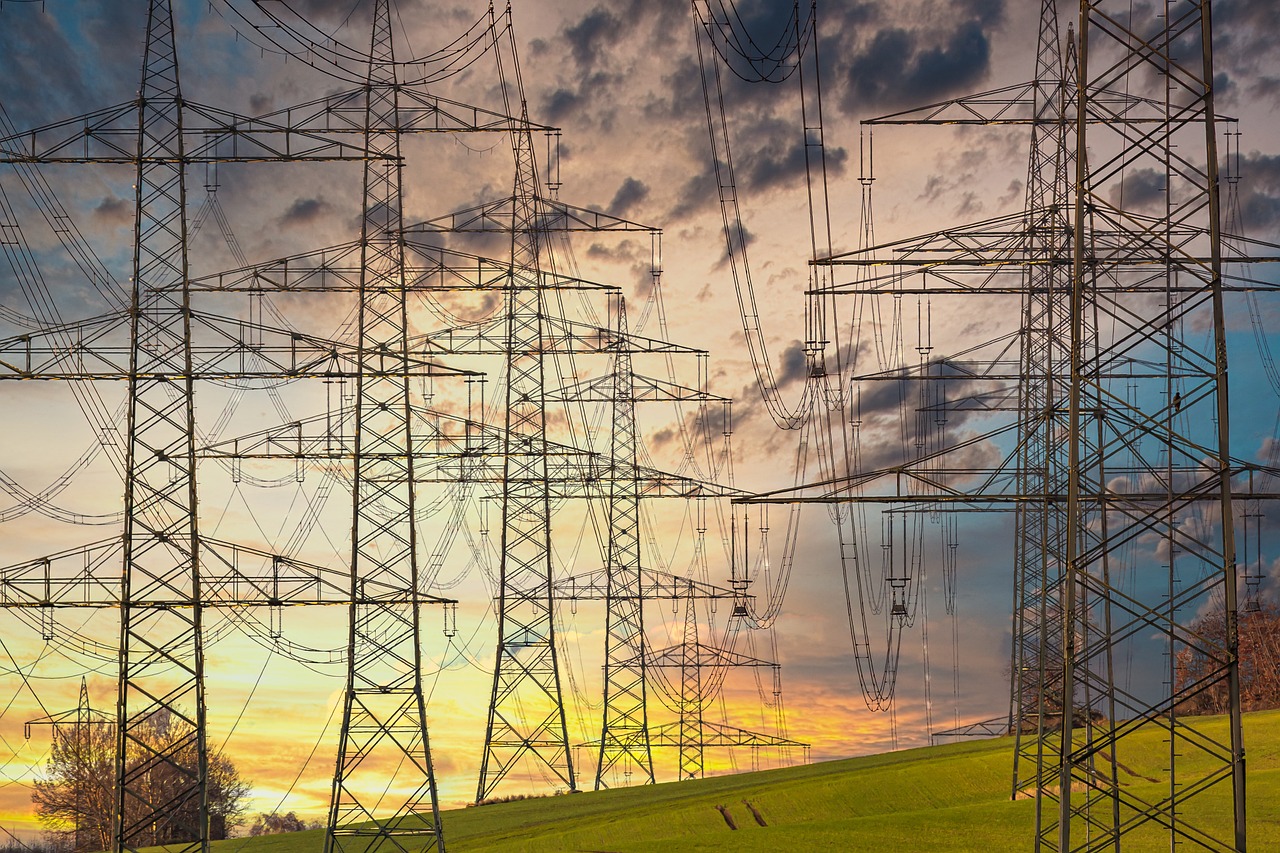
Foucault's Power Dynamics
When we think about power, many of us picture a towering figure, perhaps a king or a dictator, wielding authority with an iron fist. However, Michel Foucault challenges this traditional notion by presenting power as a fluid and pervasive force that operates through intricate networks of relationships. In his view, power is not merely something that is held by individuals or institutions; rather, it is something that is exercised through various social practices and discourses. This perspective invites us to reconsider how we understand authority and governance.
Foucault's analysis of power dynamics reveals that power is not just repressive; it is also productive. It shapes our identities, our knowledge, and our social norms. For instance, consider how societal expectations around gender and sexuality are not just enforced through laws but are embedded in our everyday interactions and institutions. This means that power is everywhere, operating in the micro-levels of society, influencing how we think and behave without us even realizing it.
One of Foucault's most significant contributions to political philosophy is the concept of biopower. This term refers to the ways in which power regulates populations through institutions, policies, and practices that govern life itself. Biopower extends into various aspects of life, including health, education, and sexuality. For example, public health policies that dictate vaccination schedules or health screenings can be seen as manifestations of biopower, where the state exerts control over the population's well-being.
Moreover, Foucault introduces the idea of governmentality, which encompasses the various ways governments exercise control over the governed. This concept goes beyond traditional government functions; it includes a range of practices and techniques aimed at shaping the behavior and thoughts of individuals. Through governmentality, power is exercised not just through laws but also through norms, values, and practices that influence how people conduct their lives.
Foucault's work encourages us to ask critical questions about the nature of power in our lives. For example, how do social institutions like schools and prisons shape our understanding of authority? How do media narratives influence our perceptions of power dynamics? By examining these questions, we can better understand the subtleties of power and resistance in contemporary society.
In summary, Foucault's exploration of power dynamics shifts our understanding from a simplistic view of power as something that is possessed to a more complex view of power as a relational force that permeates all aspects of life. His ideas challenge us to recognize the subtle ways in which power operates and to consider the implications for our own lives and the structures of authority that govern us.
- What is Michel Foucault known for?
Michel Foucault is known for his work on the relationship between power, knowledge, and social institutions. His theories have significantly influenced modern political philosophy and social theory. - How does Foucault define power?
Foucault defines power as a network of relationships that is exercised rather than held. He emphasizes that power is everywhere and operates through various social practices. - What is biopower?
Biopower is a concept introduced by Foucault that refers to the regulation of populations by institutions and policies that govern aspects of life, such as health and sexuality. - What is governmentality?
Governmentality is Foucault's term for the various ways governments exercise control over individuals, encompassing not just laws but also norms and practices that shape behavior.
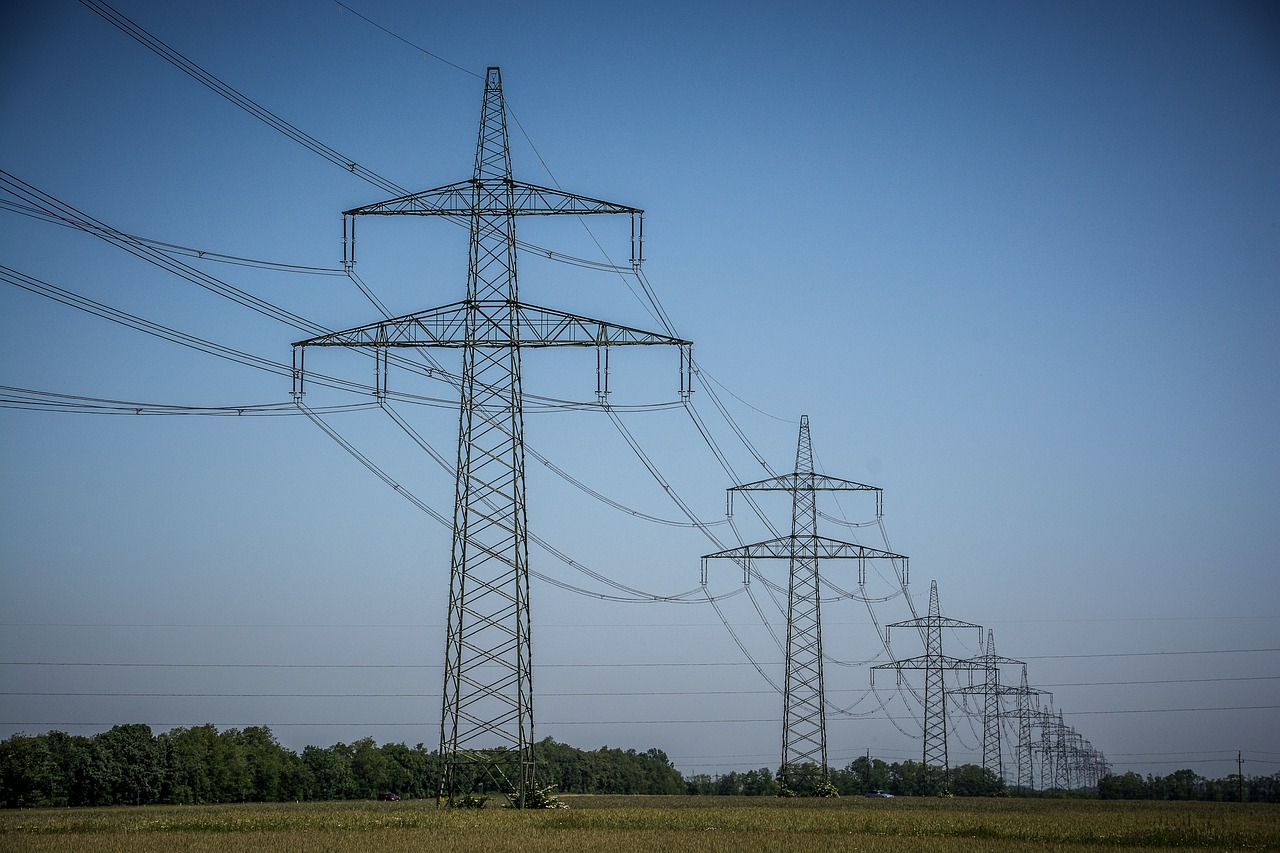
Contemporary Debates on Power
In today's fast-paced world, the concept of power is more dynamic and multifaceted than ever before. We're witnessing a shift in how power is perceived and exercised, especially in the context of globalization, digital technology, and changing social norms. This section dives into some of the most pressing debates surrounding power, highlighting the complexities and nuances that define our contemporary political landscape.
One of the most significant discussions revolves around sovereignty. With the rise of multinational organizations and global governance structures, the traditional notion of state sovereignty is being challenged. Nations must now navigate a landscape where their autonomy is often compromised by international agreements and the influence of global markets. This raises a critical question: How do states maintain their authority in an interconnected world? The tension between national interests and global responsibilities creates a rich ground for debate.
Another hot topic is the impact of digital technology on political authority. Social media platforms and digital communication have revolutionized how information is disseminated and consumed. While these tools can empower individuals and promote democratic engagement, they also pose risks to traditional power structures. The question of who controls information has become paramount. Are we witnessing the democratization of power, or is it simply a new way for established authorities to exert control? This duality invites us to critically assess how technology influences our understanding of power.
Moreover, contemporary debates also focus on the implications of individual autonomy. In an age where surveillance and data collection are rampant, the question arises: How do we balance security and freedom? The tension between protecting citizens and respecting their rights has led to significant discussions about the role of the state in our lives. As governments implement policies to safeguard national security, they often encroach upon personal freedoms, leading to a pushback from civil society. Social movements and advocacy groups are increasingly vocal about their resistance to these measures, highlighting the ongoing struggle between power holders and those who seek to challenge authority.
To illustrate these contemporary debates, consider the following table that outlines key issues, their implications, and the stakeholders involved:
| Issue | Implications | Stakeholders |
|---|---|---|
| Sovereignty | Challenges to national autonomy | States, International Organizations |
| Digital Technology | Control of information and influence on democracy | Governments, Tech Companies, Citizens |
| Individual Autonomy | Balancing security and personal freedoms | Citizens, Activists, Policymakers |
In conclusion, the contemporary debates on power are intricate and ever-evolving. They compel us to rethink our understanding of authority and governance in a world marked by rapid change and complexity. As we engage with these discussions, it becomes increasingly clear that power is not just about who holds it, but also about how it is exercised and contested. The ongoing dialogue surrounding these issues will undoubtedly shape the future of political philosophy and our collective understanding of power.
- What is the significance of sovereignty in contemporary politics? Sovereignty remains a critical issue as states navigate their autonomy in a globalized world, often balancing national interests with international obligations.
- How does digital technology affect political power? Digital technology can both empower individuals and reinforce existing power structures, raising questions about information control and democratic engagement.
- What role do social movements play in challenging authority? Social movements are vital for advocating individual rights and freedoms, often pushing back against governmental overreach and promoting accountability.

The Nature of Authority
Understanding the nature of authority is crucial for grasping how power operates within political systems. Authority, in its essence, is about the legitimacy granted to individuals or institutions to exercise power and make decisions on behalf of others. This legitimacy can stem from various sources, including tradition, charisma, or legal frameworks. It's fascinating to consider how authority shapes our everyday lives, from the laws we follow to the leaders we choose to trust.
At its core, authority is often categorized into several distinct forms, each with its own implications for governance and compliance. For instance, traditional authority is deeply rooted in established customs and practices. Think of monarchies or tribal leadership where the power is inherited and upheld by long-standing traditions. On the other hand, charismatic authority relies on the personal appeal and extraordinary qualities of a leader. This type of authority can be quite volatile, as it hinges on the leader's ability to inspire and mobilize followers. A classic example would be figures like Martin Luther King Jr. or Mahatma Gandhi, whose personal magnetism galvanized social movements.
Moreover, we cannot overlook the significance of legal authority, which is grounded in established laws and regulations. In modern governance, legal authority is paramount as it provides a structured framework for societal organization. It is enforced by bureaucratic systems that ensure compliance and maintain order. Bureaucracies play a vital role in translating laws into actionable policies, thereby facilitating the implementation of authority in everyday life. Without this legal structure, power could easily devolve into chaos, leading to an erosion of trust in governance.
To illustrate the differences between these forms of authority, consider the following table:
| Type of Authority | Source of Legitimacy | Examples |
|---|---|---|
| Traditional Authority | Established customs and practices | Monarchies, tribal chiefs |
| Charismatic Authority | Personal appeal and extraordinary qualities | Martin Luther King Jr., Mahatma Gandhi |
| Legal Authority | Established laws and regulations | Modern governments, bureaucracies |
As we delve deeper into the nature of authority, it becomes clear that the interplay between these different forms can lead to complex dynamics in governance. For instance, a charismatic leader may rise to power within a traditional framework, but their authority might be challenged if they fail to adhere to established customs. Conversely, a legal authority may face resistance if it is perceived as unjust or disconnected from the populace.
Ultimately, the nature of authority is not static; it evolves with societal changes, technological advancements, and shifting cultural norms. As we navigate through contemporary political landscapes, understanding these nuances becomes increasingly important. How do we define legitimacy in today's world? What role does public perception play in sustaining authority? These questions are pivotal as we explore the intricate web of power and authority in our lives.
- What is authority in political philosophy? Authority refers to the legitimate power granted to individuals or institutions to make decisions and enforce rules within a society.
- What are the main types of authority? The main types of authority include traditional, charismatic, and legal authority, each with distinct sources of legitimacy.
- How does legal authority differ from traditional authority? Legal authority is based on established laws and regulations, while traditional authority is rooted in customs and historical practices.
- Can authority change over time? Yes, authority is dynamic and can change with shifts in societal values, norms, and political landscapes.

Traditional vs. Charismatic Authority
When we think about authority in politics, two dominant types come to mind: traditional authority and charismatic authority. Each plays a significant role in shaping leadership and governance in distinct ways. Traditional authority is deeply rooted in established customs and long-standing practices. It is the kind of power that has been passed down through generations, often associated with monarchies, tribal leaders, or religious institutions. Think of it as the sturdy oak tree in a forest; it stands tall and firm, with its roots embedded in the soil of history and culture.
On the other hand, charismatic authority is more like a shooting star—brilliant, captivating, and often fleeting. This form of authority arises from the personal appeal and extraordinary qualities of a leader. Charismatic leaders inspire loyalty and devotion not because of their position, but because of their ability to connect emotionally with their followers. They often emerge in times of crisis, offering hope and a vision for the future. A classic example would be figures like Martin Luther King Jr. or Nelson Mandela, whose compelling personalities and messages mobilized masses and brought about significant social change.
To better understand the differences between these two forms of authority, let's break it down into some key characteristics:
| Aspect | Traditional Authority | Charismatic Authority |
|---|---|---|
| Source of Power | Established customs and traditions | Personal qualities and charisma of the leader |
| Duration | Long-lasting and stable | Often temporary and dependent on the leader's presence |
| Legitimacy | Accepted due to historical continuity | Accepted based on emotional appeal and vision |
| Examples | Monarchs, tribal chiefs | Revolutionary leaders, influential activists |
Understanding these distinctions is crucial for analyzing political legitimacy. Traditional authority tends to create a sense of stability and predictability, as it is tied to the historical context of a society. In contrast, charismatic authority can disrupt the status quo, leading to rapid changes in political landscapes. However, charismatic leaders can also face challenges; once they are no longer present, their authority may dissipate, leaving a vacuum that can lead to instability.
In essence, while traditional authority relies on the weight of history and established norms, charismatic authority thrives on the dynamism of individual leadership and the emotional connection between leaders and their followers. The interplay between these forms of authority shapes not only political institutions but also the broader social fabric in which they operate.
- What is the main difference between traditional and charismatic authority?
Traditional authority is based on established customs, while charismatic authority is derived from the personal appeal and extraordinary qualities of a leader. - Can a leader possess both types of authority?
Yes, a leader can embody both traditional and charismatic authority, especially in contexts where historical legitimacy is combined with personal charisma. - Why is understanding these types of authority important?
Recognizing the differences helps us analyze political legitimacy and the dynamics of power in various governance structures.

Legal Authority and Bureaucracy
In the modern landscape of governance, legal authority plays a pivotal role in ensuring that societies function smoothly and justly. Unlike traditional forms of authority that may rely on customs and personal appeals, legal authority is grounded in established laws and regulations that are designed to maintain order and protect citizens' rights. This framework not only provides a structure for governance but also establishes a system of accountability for those in power. Imagine a well-oiled machine; each cog represents a law or regulation that, when functioning correctly, ensures the entire system operates efficiently.
Bureaucracy, often seen as a necessary evil, is the mechanism through which legal authority is enacted. It consists of various administrative structures and processes that implement laws and policies. While many people view bureaucracy as cumbersome and slow, it is essential for maintaining consistency and fairness in the application of laws. For instance, consider how a bureaucracy processes applications for permits or licenses; it ensures that every application is treated equally under the law, regardless of the applicant's status.
One might wonder, how does bureaucracy ensure that legal authority is respected? The answer lies in its structured hierarchy and standard operating procedures. Each level of the bureaucracy has specific roles and responsibilities, which helps to prevent arbitrary decision-making. This hierarchical structure can be illustrated in the following table:
| Level of Bureaucracy | Role | Responsibilities |
|---|---|---|
| Top-Level Management | Policy Formulation | Developing laws and regulations |
| Middle Management | Policy Implementation | Overseeing the execution of laws |
| Operational Staff | Service Delivery | Interacting with the public and enforcing laws |
However, it is crucial to recognize that bureaucracy is not without its challenges. Critics argue that it can lead to inefficiencies and a lack of responsiveness to the needs of citizens. In an age where speed and adaptability are prized, the rigid structures of bureaucracies can sometimes hinder progress. Yet, it is precisely this rigidity that can also provide stability and predictability in governance.
Moreover, the relationship between legal authority and bureaucracy can be seen as a double-edged sword. While legal authority provides the legitimacy that bureaucracies need to operate, bureaucracies, in turn, can sometimes wield power that exceeds their original mandate. This can lead to a situation where bureaucratic procedures become overly complex, alienating the very citizens they are meant to serve. It raises an important question: how do we balance the need for structure with the need for responsiveness? This ongoing debate is vital for the evolution of governance in contemporary society.
In conclusion, legal authority and bureaucracy are intertwined elements that form the backbone of modern governance. They ensure that laws are not just mere words on paper but are actively enforced and respected. Understanding this relationship helps us appreciate the complexities of political authority and the necessity of a well-functioning bureaucratic system in upholding the rule of law.
- What is legal authority? Legal authority refers to the power granted to individuals or institutions to create, enforce, and interpret laws.
- How does bureaucracy function within legal authority? Bureaucracy implements and enforces laws through structured administrative processes and hierarchies.
- What are the criticisms of bureaucracy? Critics argue that bureaucracy can lead to inefficiency, rigidity, and a lack of responsiveness to citizens' needs.
- Why is legal authority important? Legal authority establishes legitimacy and accountability in governance, ensuring that laws are applied fairly and consistently.

Power and Resistance
Power is often seen as a monolithic force, an overwhelming presence that dictates the rules of engagement in society. However, it's crucial to recognize that power is not merely a top-down phenomenon; it is a dynamic interplay between those who wield it and those who resist it. This relationship is akin to a dance, where each partner influences the other's movements, creating a complex choreography of authority and dissent. Understanding this dynamic is essential for grasping the nature of political power.
Resistance to power can take many forms, from peaceful protests to revolutionary movements. Each method of resistance carries its own implications and effectiveness, often shaped by the context in which it occurs. For instance, in authoritarian regimes, dissent may manifest as underground movements or civil disobedience, while in democratic societies, it might be expressed through public demonstrations or advocacy campaigns. The key takeaway here is that resistance is a vital component of the power equation, serving as a check on authority and a catalyst for change.
Moreover, the strategies employed in resistance are as diverse as the causes they champion. Some common forms of resistance include:
- Nonviolent Protest: Demonstrations, sit-ins, and marches that aim to disrupt the status quo without resorting to violence.
- Grassroots Organizing: Mobilizing communities to advocate for change from the ground up, often through local initiatives.
- Digital Activism: Utilizing social media and online platforms to raise awareness and gather support for various causes.
- Artistic Expression: Using art, music, and literature as tools for critique and to inspire action against oppressive systems.
Each of these methods highlights the creativity and resilience of individuals and groups who challenge the prevailing power structures. The effectiveness of resistance often hinges on the ability to galvanize support and maintain momentum in the face of repression. History is replete with examples where resistance movements have succeeded in altering the course of political landscapes, reminding us that power is not absolute.
Furthermore, the digital age has transformed the landscape of resistance in unprecedented ways. Social media platforms have become powerful tools for mobilization, allowing for rapid dissemination of information and the ability to reach a global audience. Movements like the Arab Spring and Black Lives Matter have demonstrated how digital activism can challenge entrenched power dynamics and spark widespread social change. Yet, this also raises questions about the sustainability of such movements and the potential for backlash from those in power.
In conclusion, the relationship between power and resistance is intricate and multifaceted. Understanding this interplay not only sheds light on the mechanisms of authority but also empowers individuals to recognize their role within this dynamic. As history has shown, resistance is not merely a reaction to power; it is a fundamental aspect of the political landscape that can lead to transformative change.
- What is the relationship between power and resistance? Power and resistance are interdependent; resistance challenges power and can lead to changes in authority structures.
- What are some common forms of resistance? Common forms include nonviolent protests, grassroots organizing, digital activism, and artistic expression.
- How has digital technology impacted resistance movements? Digital technology has enabled faster mobilization and broader reach for resistance movements, but it also presents challenges such as potential backlash from authorities.
- Can resistance be effective in authoritarian regimes? Yes, history shows that even in authoritarian regimes, organized resistance can lead to significant political change.
Frequently Asked Questions
- What is the significance of power in political philosophy?
Power is a fundamental concept in political philosophy as it shapes governance, authority, and societal structures. Understanding power helps us analyze how decisions are made, who holds authority, and the dynamics of resistance and compliance in society.
- How did historical thinkers influence our understanding of power?
Historical thinkers like Machiavelli, Hobbes, and Foucault provided foundational insights into power. Machiavelli emphasized pragmatic strategies for political stability, Hobbes focused on the necessity of a strong authority through the social contract, and Foucault redefined power as a complex network of relationships, influencing contemporary discussions on authority.
- What are the differences between traditional and charismatic authority?
Traditional authority is based on established customs and long-standing practices, while charismatic authority relies on the personal appeal and extraordinary qualities of a leader. Understanding these distinctions is crucial for analyzing how legitimacy is perceived in different political contexts.
- How does legal authority function in modern governance?
Legal authority is grounded in established laws and regulations, which are enforced through bureaucratic structures. This system is essential for maintaining order and ensuring that governance is conducted fairly and predictably, providing a framework within which individuals and institutions operate.
- What role does resistance play in the context of power?
Resistance is a natural response to power dynamics, often arising when individuals or groups challenge authority. This can manifest through social movements, protests, or dissenting actions, highlighting the ongoing struggle between power holders and those seeking change or justice.
- How have contemporary debates on power evolved?
Contemporary debates on power have expanded to include issues like global governance, digital technology's impact on authority, and individual autonomy. These discussions reflect the complexities of modern political landscapes, where traditional notions of power are continually being reexamined and redefined.



















